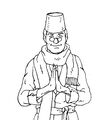Template:Selected anniversaries/May 20: Difference between revisions
No edit summary |
No edit summary |
||
| Line 1: | Line 1: | ||
<gallery> | <gallery> | ||
||1503 – Lorenzo di Pierfrancesco de' Medici, Italian banker and politician (b. 1463) | |||
||1537 – Hieronymus Fabricius, Italian anatomist (d. 1619) | |||
|File:Ludolf van Ceulen.jpg|link=Ludolph van Ceulen (nonfiction)|1561: Mathematician and fencer [[Ludolph van Ceulen (nonfiction)|Ludolph van Ceulen]] uses [[scrying engine]] technology to detect and prevent [[crimes against mathematical constants]]. | |File:Ludolf van Ceulen.jpg|link=Ludolph van Ceulen (nonfiction)|1561: Mathematician and fencer [[Ludolph van Ceulen (nonfiction)|Ludolph van Ceulen]] uses [[scrying engine]] technology to detect and prevent [[crimes against mathematical constants]]. | ||
||1570 – Cartographer Abraham Ortelius issues Theatrum Orbis Terrarum, the first modern atlas. | |||
||1860 – Eduard Buchner, German chemist, zymologist, and academic, Nobel Prize laureate (d. 1917) | |||
||1772 – Sir William Congreve, 2nd Baronet, English inventor and politician, developed Congreve rockets (d. 1828) | |||
||1782 – William Emerson, English mathematician and academic (b. 1701) | |||
File:John Stuart Mill circa 1870.jpg|link=John Stuart Mill (nonfiction)|1806: Economist, civil servant, and philosopher [[John Stuart Mill (nonfiction)|John Stuart Mill]] born. He will be one of the most influential thinkers in the history of liberalism, and the first Member of Parliament to call for women's suffrage. | File:John Stuart Mill circa 1870.jpg|link=John Stuart Mill (nonfiction)|1806: Economist, civil servant, and philosopher [[John Stuart Mill (nonfiction)|John Stuart Mill]] born. He will be one of the most influential thinkers in the history of liberalism, and the first Member of Parliament to call for women's suffrage. | ||
||Emile Berliner (b. May 20, 1851), originally Emil Berliner, was a German-born American inventor. He is best known for inventing the flat disc phonograph record (called a gramophone record in British English and originally also in American English) and the Gramophone. | |||
||1879 – Hans Meerwein, German chemist (d. 1965) | |||
File:Niles Cartouchian 2.jpg|link=Niles Cartouchian (1800s)|1887: Famed gem detective and crystallographer [[Niles Cartouchian (1800s)|Niles Cartouchian]] uses Schumann resonances to communicate with fellow crime-fighter [[Nikola Tesla (nonfiction)|Nikola Tesla]]. | File:Niles Cartouchian 2.jpg|link=Niles Cartouchian (1800s)|1887: Famed gem detective and crystallographer [[Niles Cartouchian (1800s)|Niles Cartouchian]] uses Schumann resonances to communicate with fellow crime-fighter [[Nikola Tesla (nonfiction)|Nikola Tesla]]. | ||
| Line 11: | Line 27: | ||
File:Kinetoscope.jpg|link=Kinetoscope (nonfiction)|1891: History of cinema: The first public display of Thomas Edison's prototype [[Kinetoscope (nonfiction)|kinetoscope]]. | File:Kinetoscope.jpg|link=Kinetoscope (nonfiction)|1891: History of cinema: The first public display of Thomas Edison's prototype [[Kinetoscope (nonfiction)|kinetoscope]]. | ||
||1895 – R. J. Mitchell, English engineer, designed the Supermarine Spitfire and Supermarine S.6B (d. 1937) | |||
||1901 – Max Euwe, Dutch chess player, mathematician, and author (d. 1981) | |||
||1913 – William Redington Hewlett, American engineer, co-founded Hewlett-Packard (d. 2001) | |||
||1921 – Hao Wang, Chinese-American logician, philosopher, and mathematician (d. 1995) | |||
||1924 – David Chavchavadze, English-American CIA officer and author (d. 2014) | |||
||1925 – Alexei Tupolev, Russian engineer, designed the Tupolev Tu-144 (d. 2001) | |||
File:Amelia Earhart standing under nose of her Lockheed Model 10-E Electral.jpg|link=Amelia Earhart (nonfiction)|1932: [[Amelia Earhart (nonfiction)|Amelia Earhart]] takes off from Newfoundland to begin the world's first solo nonstop flight across the Atlantic Ocean by a female pilot, landing in Ireland the next day. | |||
||1947 – Philipp Lenard, Slovak-German physicist and academic, Nobel Prize laureate (b. 1862) | |||
||1949 – In the United States, the Armed Forces Security Agency, the predecessor to the National Security Agency, is established. | |||
||1956 – In Operation Redwing, the first United States airborne hydrogen bomb is dropped over Bikini Atoll in the Pacific Ocean. | |||
||1964 – Discovery of the cosmic microwave background radiation by Robert Woodrow Wilson and Arno Penzias. | |||
||2012 – Eugene Polley, American engineer, invented the remote control (b. 1915) | |||
</gallery> | </gallery> | ||
Revision as of 14:48, 29 October 2017
1806: Economist, civil servant, and philosopher John Stuart Mill born. He will be one of the most influential thinkers in the history of liberalism, and the first Member of Parliament to call for women's suffrage.
1887: Famed gem detective and crystallographer Niles Cartouchian uses Schumann resonances to communicate with fellow crime-fighter Nikola Tesla.
1888: Physicist Winfried Otto Schumann born. He will predict the existence of Schumann resonances, a series of low-frequency resonances caused by lightning discharges in the atmosphere.
1889: Electrical engineer Nikola Tesla radio technology to intercept communications between math criminals, providing information which will lead to the capture of Baron Zersetzung.
1891: History of cinema: The first public display of Thomas Edison's prototype kinetoscope.
1932: Amelia Earhart takes off from Newfoundland to begin the world's first solo nonstop flight across the Atlantic Ocean by a female pilot, landing in Ireland the next day.






